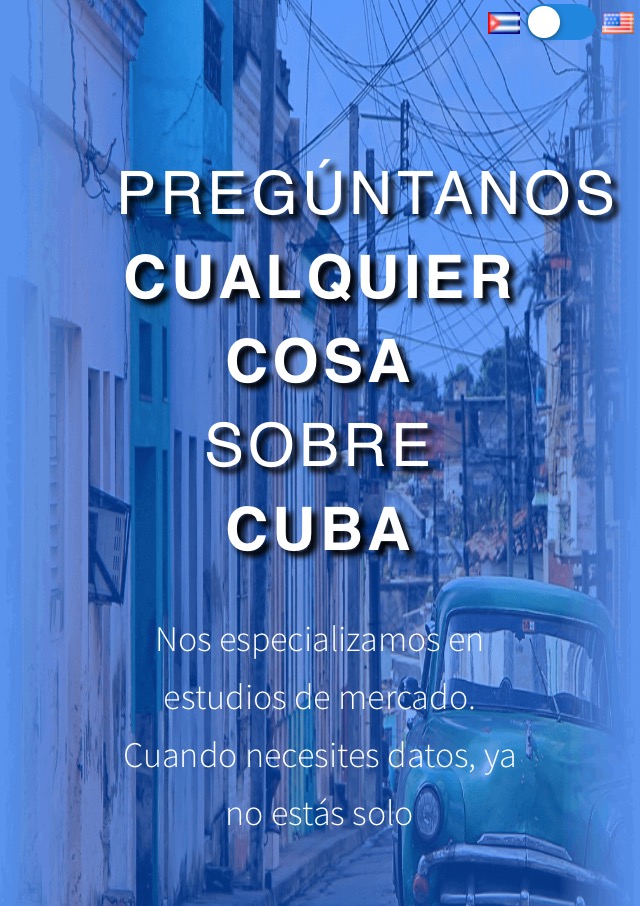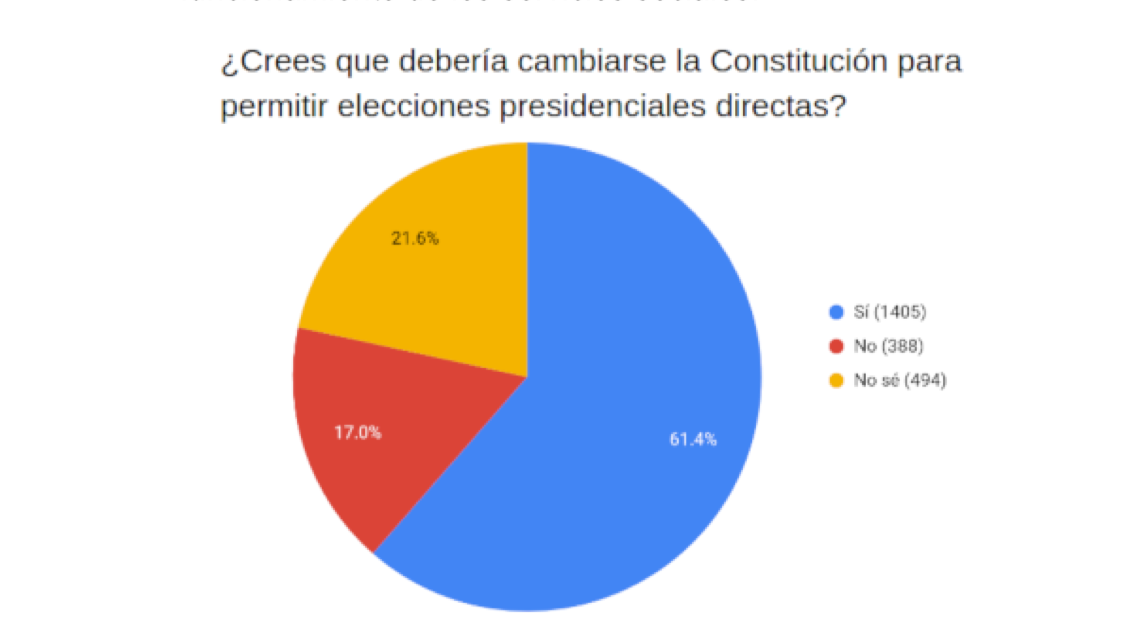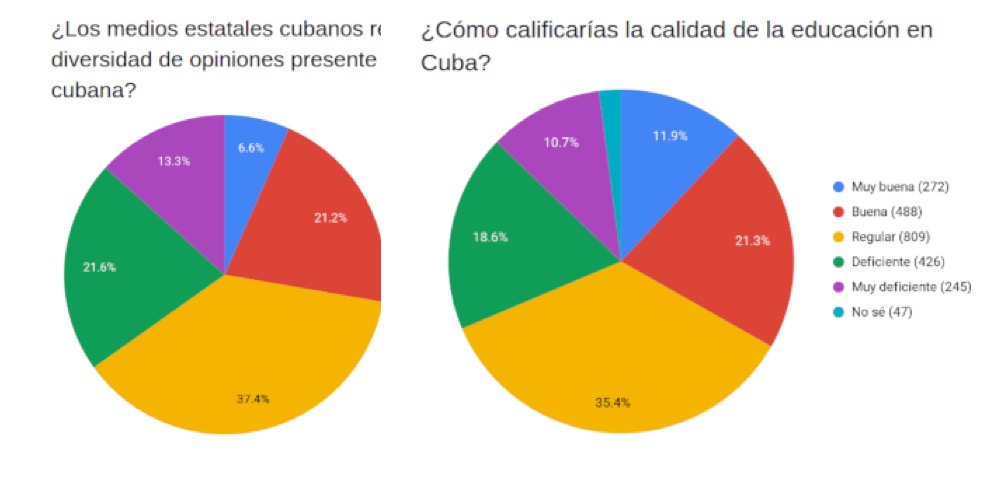
Somos+, 15 August 2018 — Cuba is finding itself in a moment of great changes. Constitutional reform and the legitimacy of new leaders, together with a lack of rights and the prolonged socioeconomic crisis, are the elements combining together over growing social uncertainty.
The survey that we are presenting today — probably the biggest independent public opinion study carried out on the island since the triumph of the Revolution in 1959 — focuses on measuring the aspirations, perceptions, and evaluations of Cubans in various spheres: their economic rights and the effectiveness of reforms, political institutionalization, freedoms, and the functioning of social services.


Carried out between June 4 and 11, 2018, the survey covered a sample of 2,287 people, with individual and verifiable profiles, who agreed to respond voluntarily via the online tool of CubaData.
The results, analyzed by a team of specialists from academic centers in the United States, Mexico, and Venezuela, were compared with the main surveys carried out in Cuba and other countries of interest. Showing a diverse country, with concrete questions of a dissimular nature, that reveal the opinions of a society that is reconfiguring itself and that by this time does not allow black and white readings.
We highlight here the most relevant aspects of the survey.
In the field of economic reforms:
– 83.4% of those polled believe that foreign businesses on the island should be able to hire Cuban workers directly
– 81.9% understand that the government should not control a monopoly over imports and exports
– 87.6% believe that Cuban professionals should be able to start businesses and companies within their professions
In the field of social services:
– 62.9% think that Cuban public health is not good, qualifying it as “regular” (33.3%), “deficient” (18.9%), and “very deficient” (10.7%)
– 61.7% have had to pay or give a gift to a doctor at least once to be seen or to get a consultation more quickly
– 64.7% believe that the quality of education is “regular” (35.4%), “deficient” (18.6%), or “very deficient” (10.7%)
In the field of freedoms:
– 65.6% do not believe that Cubans can say what they think in public places, forums, or communication media without the fear of suffering reprisals
– 58.9% do not believe that the state media reflects the diversity of opinions present in society
– 84.4% believe that Cubans do not have sufficient internet access
In the field of Constitutional reform:
– 38.2% do not know if the article that declares the irrevocability of socialism should be eliminated, while 34.8% say yes and 27% no
– 45.7% believe that political parties other than the Communist party should be permitted, while 28.9% do not know and 25.4% oppose the idea
– 61.5% believe that presidential elections should be direct, while 21.6% say they don’t know and 17% oppose them
Finally, in the field of the biggest worries of Cubans, the surveyed give priority to income (26.6%), food (21.2%), and public services (13.9%), while they find themselves very divided over the possibilities that the new president, Miguel Díaz-Canel, can manage to change and improve things in the country. 46% of the responses believe that Díaz-Canel has little chance of achieving change, while 35% seem more optimistic. The indecisive find themselves in the middle of these two groups.
See the survey (http://www.cubadata.com.es)
The results were analyzed by the specialists: Armando Chaguaceda (Universidad de Guanajuato), Elaine Acosta (Florida International University), Juan Manuel Trak (Universidad Católica Andrés Bello) and Rodrigo Salazar-Elena (FLACSO México), who presented a detailed report on the matter.
The CubaData survey is based on a non-probabilistic sample of 2,287 users of mobile apps with identified profiles and access to email. The reported conclusions are not intended to be representative of the totality of the Cuban population, but rather solely those of the group of subjects who answered the questionnaire. Subjects who, for the diversity of their identities, express real tendencies of Cuban society. Given the restrictions in carrying out surveys in the field or via the internet, the data of this study are a first approximation of the scope of Cuban opinions.
In the immediate future, we will continue extending and perfecting the reach and the representation of this type of study.
Translated by: Sheilagh Carey
